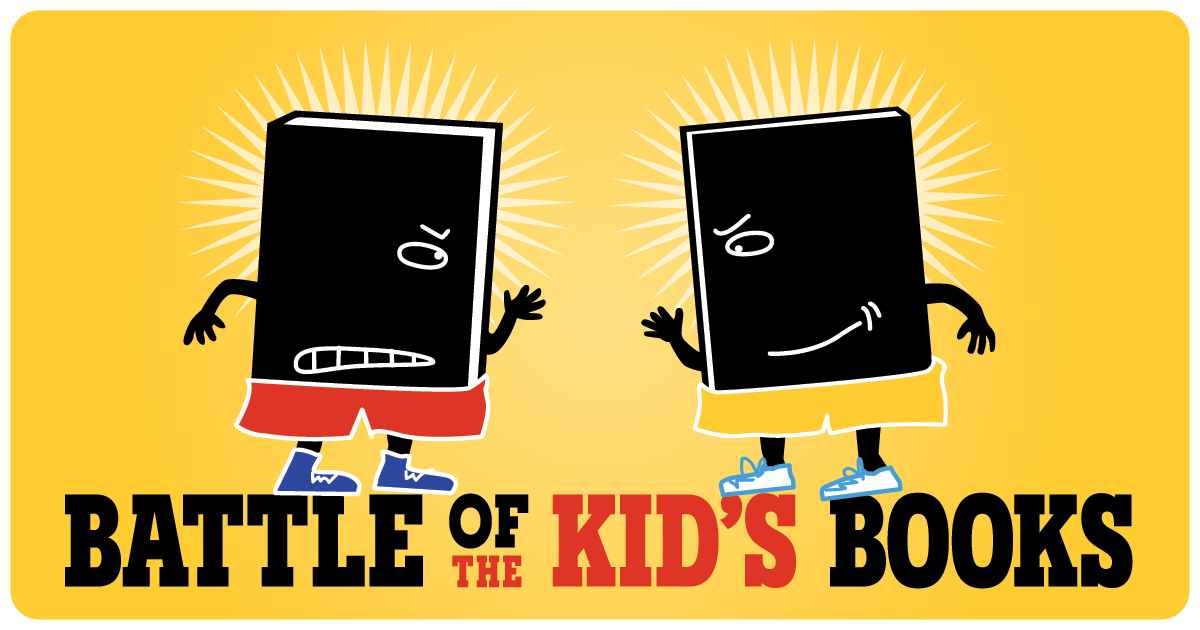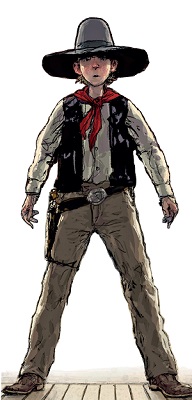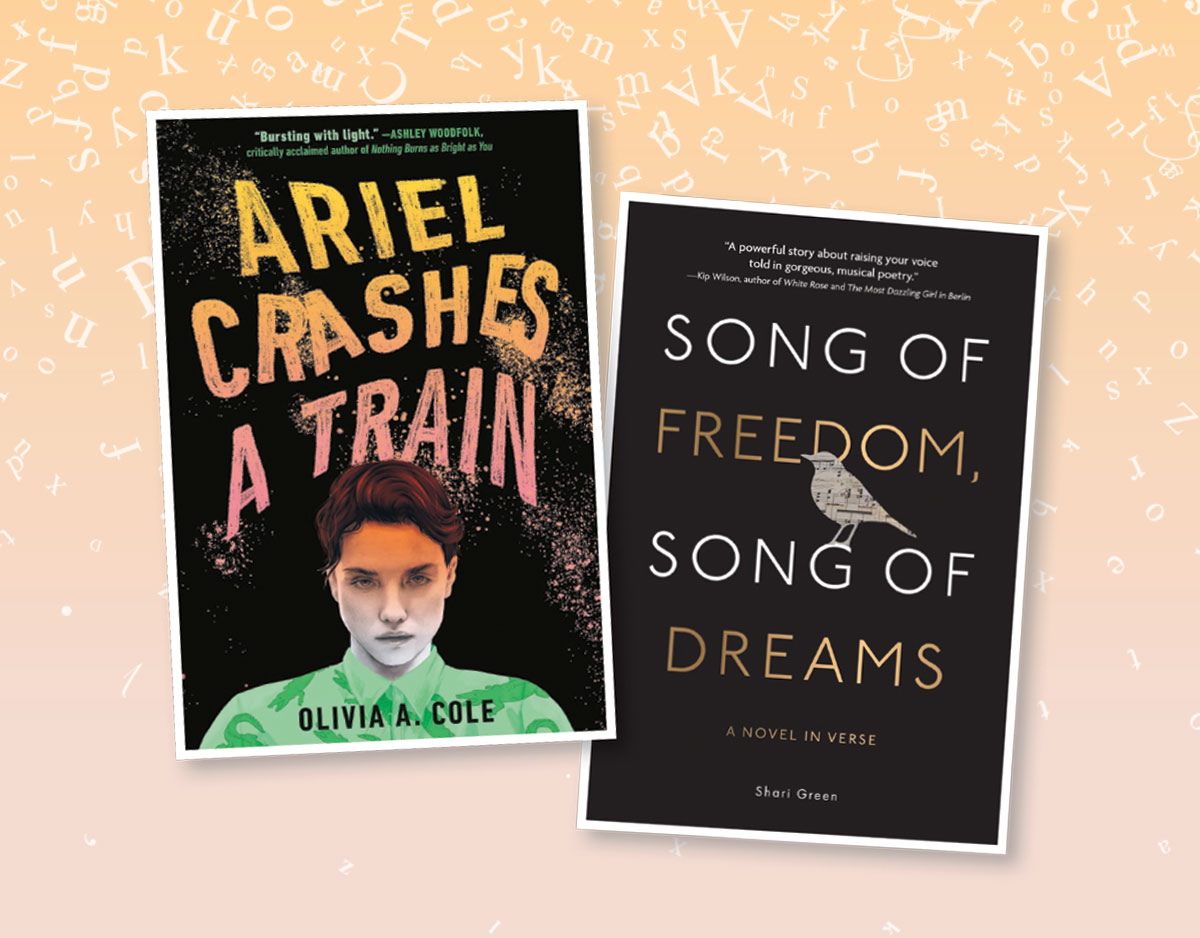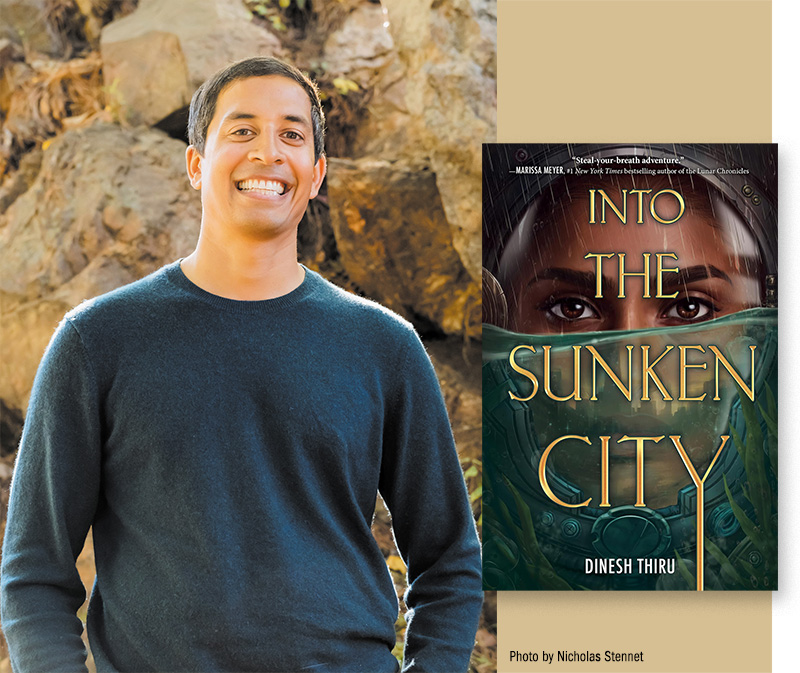SCROLL DOWN TO READ THE POST
Round 3, Match 2: The Port Chicago 50 vs West of the Moon
|
JUDGE – MARCUS SEDGWICK |
|
| The Port Chicago 50 by Steve Sheinkin Roaring Brook/Macmillan |
West of the Moon by Margi Preus Harry Abrams |

Chalk and cheese. Apples and Oranges. I know I’m not the only judge to wonder how on Earth to put two novels into direct competition with each other and pronounce one to be the winner. (I also tremble at the notion of judging another writer’s work, but, that’s the deal, so I’ll get over my nervous English hand-wringing and get on with it). The two books in my care: a light picaresque novel drawing on Norwegian folk tales to tell a story of two sisters hoping to escape poverty and settle in America, and a narrative non-fiction book dealing with a lesser-known milestone in the civil rights movement. Chalk and cheese? More like mongeese and mathematics.
In fact, the books do have one thing in common; both in their own way tell a small part of the vast on-going history of the United States; though West of the Moon ends before the sisters even get there, the story of immigration is as American as it gets, as is, of course, the struggle for equality by African-Americans.
Clutching at straws over, I want to add that actually, I was delighted at the variance of the books I was asked to read. I’ve just come from a private debate between myself and the editor of the children’s book pages of a national newspaper, concerning the latest book I was to review. The book (which I won’t name but which has won at least one big prize that I know of) wasn’t that great. It wasn’t that bad, either, but what I found troubling was that it represented what it seems to me is becoming one of two great stereotypes of YA fiction: the breathily-voiced-intensely-emotional-I’m-such-a-misfit first person narrative. Let me make it very clear: there have been some very fine books that have used this approach. There will be more to come. What’s worrying (at least from where I’m writing on the UK side of the pond) is that it seems increasingly that these books are the only ones that are raved about, hyped, given column inches, (perhaps even published!), and many of them really aren’t that good. I said there were two stereotypes; the other we might call The Twilight Games. Between these two pillars of current publishing it feels like anything that doesn’t conform is getting squeezed out, or at the very least, overlooked.
I expressed to the editor of the paper my view that I very much hope I’m wrong about all this; and that there are indeed well-written and truly original novels being published for young people. I know this contest, as I understand it, is not specifically about YA literature, rather that books are selected that are intended ‘for a similar audience’, but this year’s selection is predominantly made of books for high school readers. And at the very least, those good people at the SLJ who organise this contest have found a healthy handful of diversity, and that’s great to see.
I was expecting to like West of the Moon and there is indeed a lot to like about it. It has a nice turn of phrase, it lightly handles dark matters and it feels authentic. Given that I’m a fan of almost anything Scandinavian, and adore folk and fairy tales, I was very happy to see Margi Preus intended to mix those old stories into her account of the sisters’ endeavours to make it to America. This should seem like a gift to the writer, but for this reader at least, that’s where the trouble began. All fiction is a bargain with the reader. As a reader, you do of course know that what you’re reading isn’t actually real, but if the book is well-written you’re happy to forget that fact and be swept up into the story as if it were. That’s perhaps one definition of good writing – if you don’t convince the reader they want to make that leap of faith, they won’t be captivated by the book.
The danger of weaving too many second-level stories into the fiction you’re writing is that the reader may be unable or unwilling to make this second jump; to caring about those parts too, and that’s vital because a reader must care about all parts of a story or be bored and unmoved by them. It can be done, of course, but here I found they interfered with the main story, rather than enhanced it.
The Port Chicago 50 requires no leap of faith at all to believe that it’s real for the obvious reason that it is. The challenge of non-fiction is a different one: that it will only be interesting if the reader believes it’s relevant and important, but given the subject matter of the book I hope we can all agree that goes without saying. However, even the most interesting subject can be killed through weak writing or bad management. Steve Sheinkin doesn’t duck the issues. It would have been easy to have made this a shorter book, gloss over some of the finer aspects; for example, to have avoided the details of the legal arguments at the court martial of the fifty men. And yet this is where I think the book works best, by showing the subtleties of the court case we truly understand how awful it must have felt to have been one of those men; segregated, discriminated against, lied about, incarcerated, and as a final ignominy, ignored. Most of all I value that it demonstrated something that we need reminding of constantly – that whenever there is positive progress in the world it comes about through the actions of men and women deemed, at the time, to be awkward, unreasonable, or in this case, mutinous.
In the final analysis, I think the only way we can judge books of a very different nature is to ask how well they achieve what they set out to achieve. What were these two books trying to do, and which of them did it best? For me, of these two admirable books, that’s The Port Chicago 50.
— Marcus Sedgwick

Again, another very concise decision, this time from Sedgwick. And I do love the British view of things, although I’m sure there’s plenty of “awkward, unreasonable, and mutinous” people changing the UK, too. Both West of the Moon and Port Chicago 50 feature such characters and their stories somehow. Poor Norwegians undergo the trial, through faith and magic, of immigration to America; brave black sailors, subject to scarring racism, stand up for their rights. Unfortunately, due to simple subjectivity, Sedgwick can’t make that leap of faith for Astrid and friends. For Port Chicago, we must all make a leap of faith in attempting to understand the soldiers’ true story, so it deserves to win. And, yes, fie on those great stereotypes of American (and British) YA Lit taken too far. Yet The Battle this year, in all the judges’ decisions, portrays the power of history mixed with the power of imagination. A book that captures both of these powers in stunning detail and breadth should probably win it all. Thus, out of these worthy contenders, I would likely not pick El Deafo to win the whole shebang, but rather Port Chicago, or perhaps the mysterious winner of the Undead…
– Kid Commentator RGN

Leave it to Mr. Sedgwick to so gracefully knock out my favorite of this year’s line up. That being said, I must admit that while Steve Sheinkin did open my eyes to a part of the civil rights movement I never thought existed, the unexpectedly dark and resilient tale of Astri captured my heart like no other. When I first learned that these two would go head to head vying for a spot in the Final Round, I was not surprised. Both of the books focus on the struggles of paving your way in a world that has already deemed you inferior, with strong willed characters willing to stand up to their objectification: Astri does so with a knife, and Thurgood Marshall with a pen.
For me, what makes a truly remarkable book is the strength of its characters. And the bravery, brilliance, and honesty of West of the Moon‘s protagonist made me really feel like a part the story, an element I found lacking in Sheinkin’s historical masterpiece. All in all, with my utmost respect to Port Chicago 50 and the gracious judge, I disagree with the decision and pray for a West of the Moon resurrection.
– Kid Commentator GI
THE WINNER OF ROUND 3 MATCH 2:
THE PORT CHICAGO 50
About Battle Commander
The Battle Commander is the nom de guerre for children’s literature enthusiasts Monica Edinger and Roxanne Hsu Feldman, fourth grade teacher and middle school librarian at the Dalton School in New York City and Jonathan Hunt, the County Schools Librarian at the San Diego County Office of Education. All three have served on the Newbery Committee as well as other book selection and award committees. They are also published authors of books, articles, and reviews in publications such as the New York Times, School Library Journal, and the Horn Book Magazine. You can find Monica at educating alice and on twitter as @medinger. Roxanne is at Fairrosa Cyber Library and on twitter as @fairrosa. Jonathan can be reached at hunt_yellow@yahoo.com.
ADVERTISEMENT
SLJ Blog Network
One Star Review, Guess Who? (#202)
This Q&A is Going Exactly As Planned: A Talk with Tao Nyeu About Her Latest Book
Exclusive: Giant Magical Otters Invade New Hex Vet Graphic Novel | News
Take Five: LGBTQIA+ Middle Grade Novels
The Classroom Bookshelf is Moving
ADVERTISEMENT
ADVERTISEMENT








